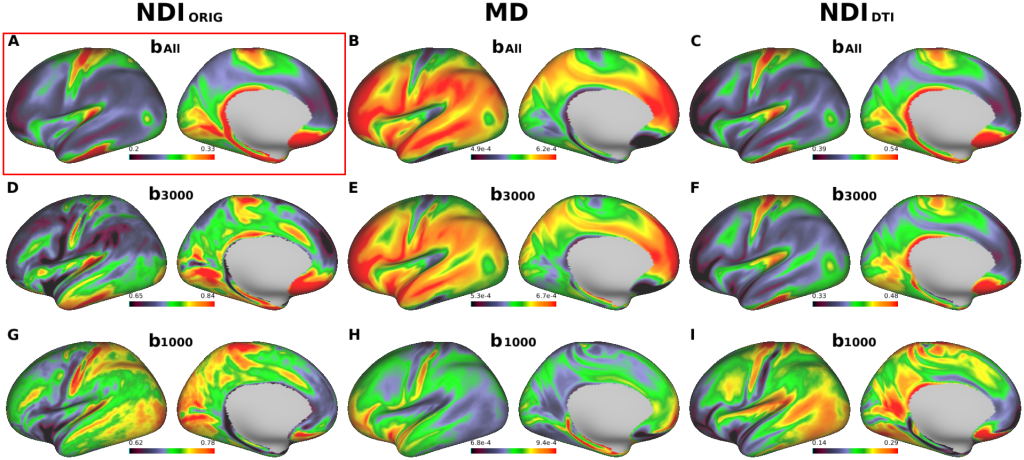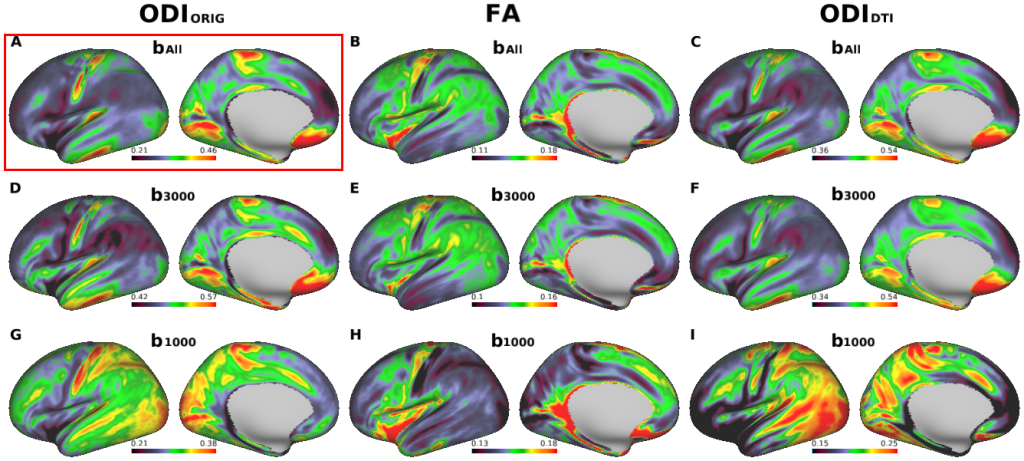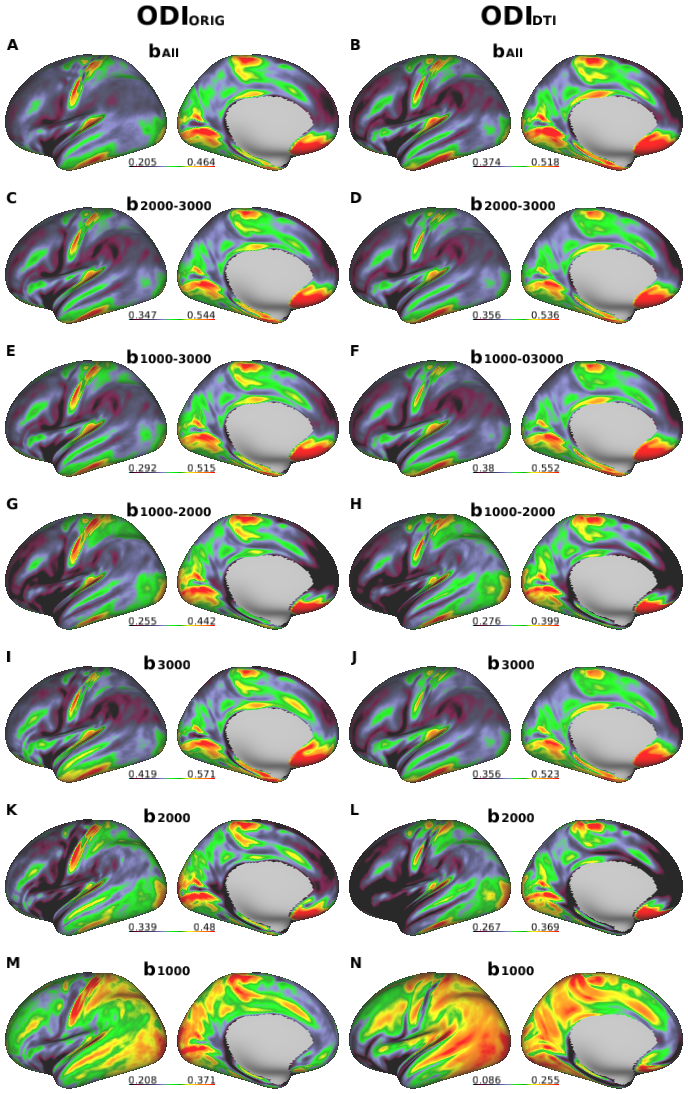FULL TITLE:
Diffusion Tensor Model links to Neurite Orientation Dispersion and Density Imaging at high b-value in Cerebral Cortical Gray Matter
SPECIES:
Human
ABSTRACT:
Diffusion tensor imaging (DTI) and neurite orientation dispersion and density imaging (NODDI) are widely used models to infer microstructural features in the brain from diffusion-weighted MRI. Several studies have recently applied both models to increase sensitivity to biological changes, however, it remains uncertain how these measures are associated. Here we show that cortical distributions of DTI and NODDI are associated depending on the choice of b-value, a factor reflecting strength of diffusion weighting gradient. We analyzed a combination of high, intermediate and low b-value data of multi-shell diffusion-weighted MRI (dMRI) in healthy 456 subjects of the Human Connectome Project using NODDI, DTI and a mathematical conversion from DTI to NODDI. Cortical distributions of DTI and DTI-derived NODDI metrics were remarkably associated with those in NODDI, particularly when applied highly diffusion-weighted data (b-value = 3000 sec/mm2). This was supported by simulation analysis, which revealed that DTI-derived parameters with lower b-value datasets suffered from errors due to heterogeneity of cerebrospinal fluid fraction and partial volume. These findings suggest that high b-value DTI redundantly parallels with NODDI-based cortical neurite measures, but the conventional low b-value DTI is hard to reasonably characterize cortical microarchitecture.
PUBLICATION:
Scientific reports
- DOI:
10.1038/s41598-019-48671-7
- PMID:
31439874
- Hikaru Fukutomi
- Matthew F Glasser
- Katsutoshi Murata
- Thai Akasaka
- Koji Fujimoto
- Takayuki Yamamoto
- Joonas A Autio
- Tomohisa Okada
- Kaori Togashi
- Hui Zhang
- David C Van Essen
- Takuya Hayashi




